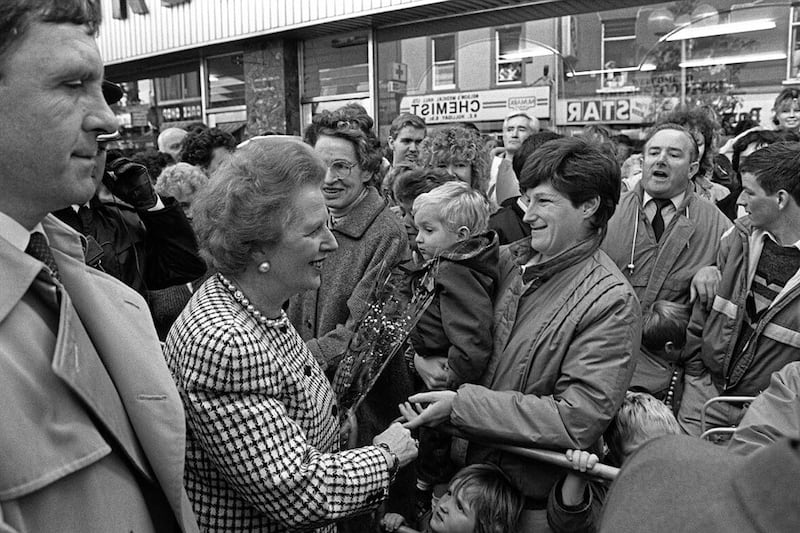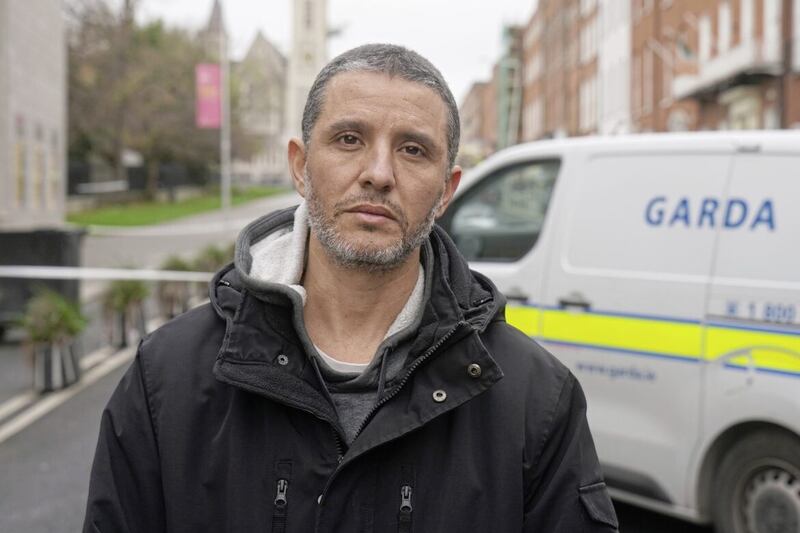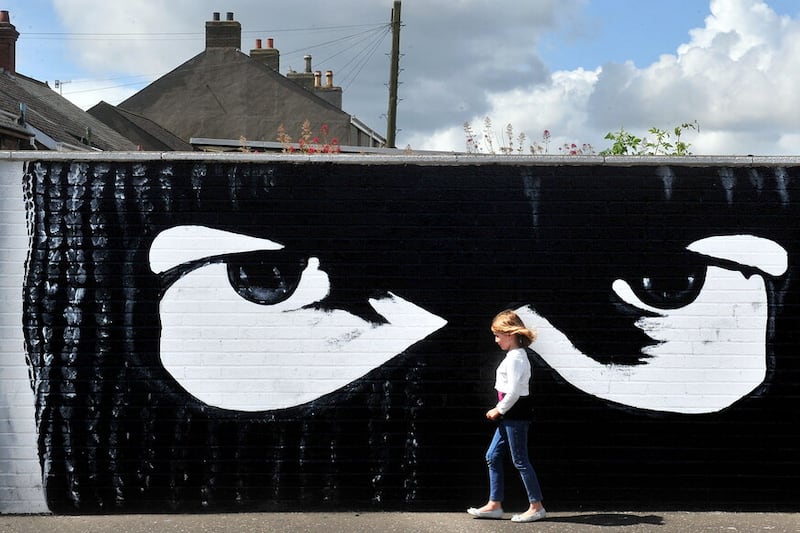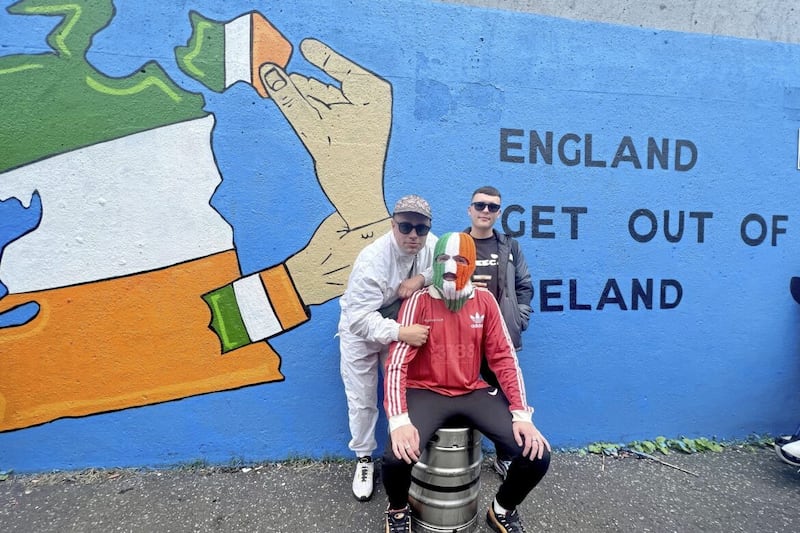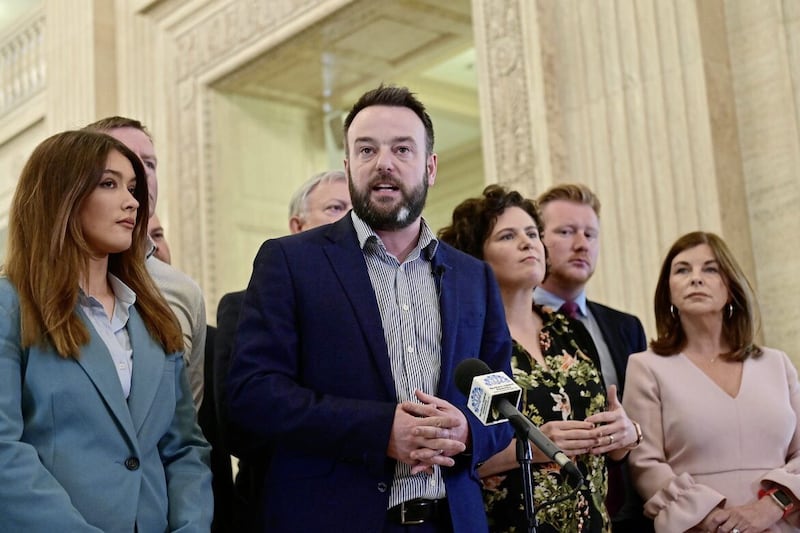Travelling to Dublin last week for work, I was amazed to find the train quite overcrowded but then discovered that the so-called flagship service of Translink, the Enterprise, had been shrunk into a three-carriage commuter train with passengers packed in like sardines.
Monty-Pythonesque Translink call this a “reduced” service.
The Enterprise between Belfast and Dublin is getting a face-lift which, given the state of the fabrics and wobbly seats, is long overdue.
But as with most things in Northern Ireland the make-over is just that - albeit an expensive one.
As a frequent traveller by train, it's only relaxing when you are not in a hurry.
The timetables are woeful between Dublin and Belfast, although the masses of civil servants who live around greater Belfast enjoy a relatively frequent train service.
Taking the train to Dublin is only outdone in slowness by taking a train between Belfast and Derry- where cycling to the Maiden City becomes a serious option.
Contrary to the spin, train travel in Northern Ireland is both expensive and inconvenient, although pensioners and concession holders do get a relatively good deal.
Speed is an issue. The train between Newry and Belfast takes far too long, making the car or bus the only viable options.
Lord Dubs, the one-time transport minister, said that watching the number of single motorists driving into Belfast on the M1 was disheartening.
Again the minister, sitting from the vantage point of his chauffeur-driven car, saw no irony in his comments.
Lord Dubs was right though, as we are overwhelmingly addicted to our cars. Most householders now own two; even many of our schools have to provide more parking spaces for their students than their staff.
A car-driving university student was a rarity in the 1980s but is now the norm. These same cash-strapped students oppose university fees but can splash the cash on diesel.
The real problem in Northern Ireland is our attitude to public transport. Over the last 50 years we have witnessed a reduction in the number of options available.
A whole network of trains disappeared and bus routes were decimated too. Even the last of the tram system vanished.
Whilst the rest of Europe developed their public transport systems, Ireland and Britain cut it to shreds.
The Troubles too played a part. Buses made easy targets for hijackers, blockades and even bombs. Fewer people were willing to use them and in rural areas and fewer still were prepared to travel outside of their locality for work.
And of course in the meantime cars became more affordable. So several generations of northerners have a non-plussed attitude to public transport.
To their credit Translink has improved the quality of its stock and vehicles, making them more comfortable and wi-fi enabled. However, the consumer-facing part of their business is still seriously third class.
Further evidence of our attitude to public transport comes from the absence of traffic jams when the schools are off.
The whole concept of children walking or cycling to school seems to have disappeared completely as parents take to roads in their droves.
Anecdotally, I witness the ridiculous spectacle of parents within a housing development driving their children to the school bus stop a mere 500 metres from their homes.
Promoting an annual walk to school week is a superficial and wasteful PR stunt.
One reason for the growth in childhood obesity is directly related not only to the junk they are allowed to eat but their lack of exercise through normal everyday things like walking to the bus stop or school.
In Dublin the introduction of the tramline service, the Luas, has been hugely successful and its extension is eagerly awaited. But Dublin, like most European cities once bustled with a busy tram service.
Belfast by contrast lacks connectivity across the city. Bus lanes alone are not the answer. To relieve congestion at peak times is sensible but to see empty buses and empty lanes within the city centre during other times of the day only heightens the sense of frustration of both shoppers and city centre traders.
The Department for Regional Development, responsible for both our road network and public transport service, is now seriously cash-strapped and unable to embark on any major life changing initiatives.
As potholes evolve into craters and uncut grass verges turn into hay fields, it may take a collapse in the network to change our attitudes to public transport.




